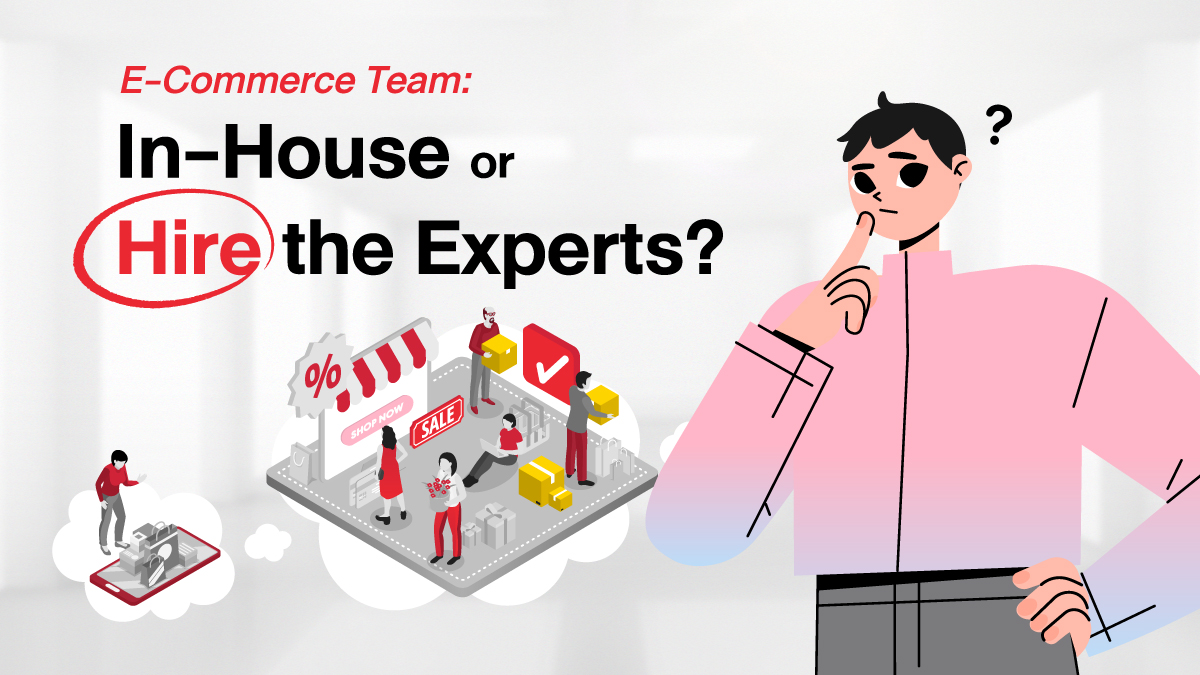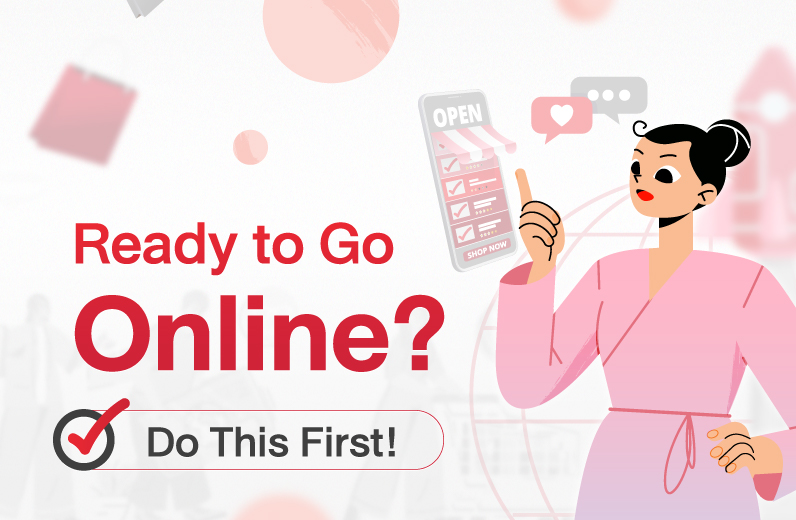Should You Build an Ecommerce Team or Outsource?

Should You Build an Ecommerce Team or Outsource?
As your online business grows, a common question arises: “Should we build an in-house ecommerce team, or outsource to professionals?”
The answer depends on your brand’s maturity, internal resources, growth goals, and speed of execution. In this article, we’ll explore both approaches and help you determine the right model for your business.
Common Challenges of Managing Ecommerce In-House
Running everything internally may work at first—but as operations expand, many brands encounter issues such as:
• Too many responsibilities on a small team: One person managing content, ads, chat, and logistics
• Lack of specialization: No experts in SEO, data analysis, or marketplace structure
• Scaling limitations: Team can’t grow fast enough to meet rising demand
• Slow platform adaptation: Shopee/Lazada update features often, and it’s hard to keep up
• No real-time dashboards or performance monitoring tools
Benefits of Building an In-House Team
While internal teams come with limits, they offer distinct strengths:
• Full brand control and alignment
• Faster decision-making without external dependencies
• Deep understanding of your products and audience
• Long-term skills development within your team
This model suits brands with solid budgets and a long-term vision for internal digital maturity.
Benefits of Outsourcing Ecommerce Operations
Turning to a professional ecommerce management company or agency allows businesses to scale quickly while staying focused on core functions.
Advantages include:
• Access to specialists across ads, content, creatives, CRM, and data
• Faster time-to-market using pre-built systems and experienced teams
• Deep platform expertise for Shopee, Lazada, TikTok Shop, and D2C sites
• Ability to handle large catalogs and complex campaigns
• Real-time dashboards and campaign insights
• No risk of disruption from employee turnover
Perfect for brands that want to focus on product development, marketing direction, and revenue—while letting experts handle execution.
In-House vs Outsource: Side-by-Side Comparison
|
Category |
In-House Team |
Outsourced Ecommerce Partner |
|
Speed to Launch |
Slower (requires hiring/training) |
Faster (ready teams available) |
|
Initial Cost |
Lower short-term |
Slightly higher, based on service tier |
|
Branding Control |
High |
Depends on alignment & communication |
|
Brand Familiarity |
Deep, long-term |
Requires onboarding & brief process |
|
Specialist Expertise |
Limited |
Full team of cross-platform experts |
|
Operational Risk |
Higher (turnover, burnout) |
Lower (agency manages workforce) |
Choosing the Right Partner: One-Stop Ecommerce Service
If you’re looking for a balance between speed, scale, and strategic guidance, One-Stop Ecommerce Services are ideal. These solutions offer end-to-end support from marketplace setup to fulfillment and customer service.
Why Brands Choose transcosmos Thailand:
• 80+ ecommerce specialists across content, media, CRM, and data
• Coverage of both Shopee & Lazada plus your D2C website
• Built-in tools: dashboards, OMS, CRM, campaign reporting
• Experience with global and local brands in Thailand and SEA
• Scalable support for double-day campaigns, product launches, and more
Want to grow without the internal burden? Learn more about transcosmos One-Stop Ecommerce Solutions
Final Thoughts: There’s No One-Size-Fits-All—Only the Right Fit for You
Both in-house and outsourced models offer value. Your decision depends on:
• Team size and capability
• Budget availability
• Campaign urgency
• Product complexity and platform diversity
If you need to scale fast and don’t yet have the internal foundation, outsourcing to a trusted ecommerce partner can reduce risk and drive results efficiently.





